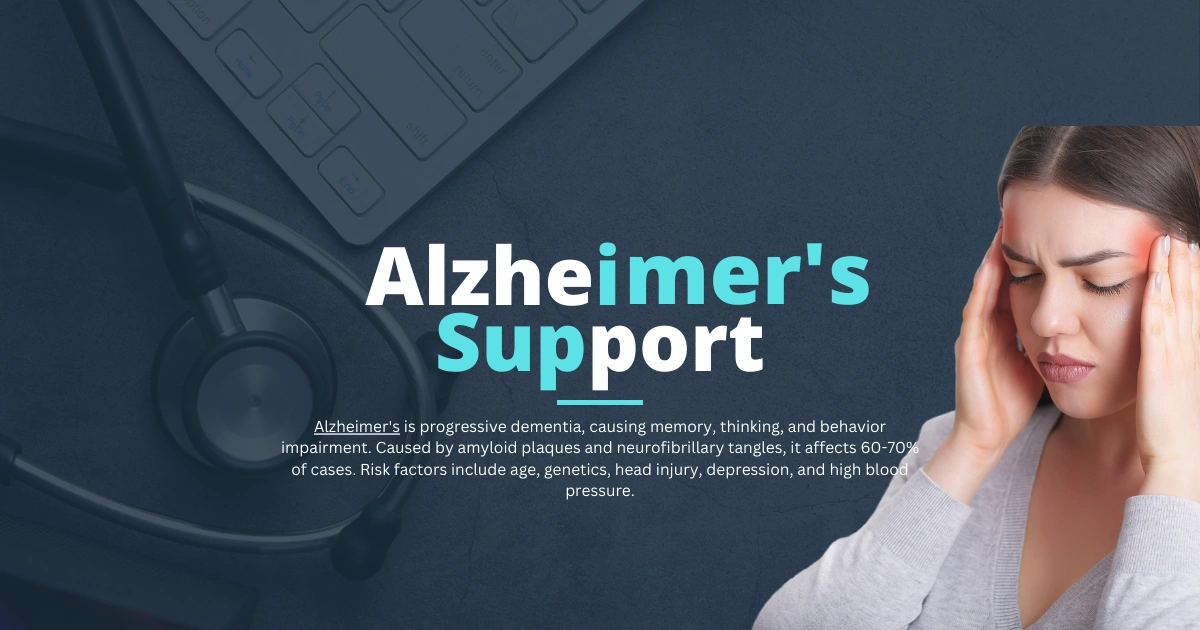Alzheimer’s is progressive dementia, causing memory, thinking, and behavior impairment. Caused by amyloid plaques and neurofibrillary tangles, it affects 60-70% of cases. Risk factors include age, genetics, head injury, depression, and high blood pressure.
Many people think that someone who has Alzheimer’s cannot live at home, but if friends and family support them, it is a goal that can be managed unless the illness progresses.
So, as their primary carer, what are some of the best ways that you can help your loved one with Alzheimer’s?
Preserve Their Quality of Life
When someone receives a diagnosis of Alzheimer’s, it is easy to think that the next step is to start searching for care homes in Ascot. Or, if they live with you, to stop them from doing daily tasks. The latter is more detrimental to their well-being and even the progression of the illness. Imagine going from managing your home and doing chores to being put in a room with nothing to do- you wouldn’t like it, and neither would your relatives. So, try to preserve their quality of life; if they like going out with friends, encourage them to continue. If they are proud of their house, let them continue polishing and dusting!
Make The Home Safer
It would be unwise to state that Alzheimer’s does not come with physical challenges. Many people experience muscle wastage and have tremors that accompany the disease. So, make sure that your home is as safe as possible. Grab rails should be placed on the stairs, and ramps should be placed at the front and back of the house to ease mobility. You should also make sure that any rugs are secured and that if you have a bath with a lip, there is a way for your relative to get in and out of the tub with ease.
Learn as Much as You Can
Alzheimer’s is a complicated illness, and, as such, if you are caring for someone who has it, the best thing you can do is learn as much as you can about the issue. There are many websites online that can provide you with resources, as well as health centers that may offer courses on managing someone who has this diagnosis. The more you know, the less the illness will scare you, and the better you will manage it.
Seek Support (for you and them)
Most towns and cities have support groups for people who have Alzheimer’s. This is ideal, as these meet-ups will allow you and your family member to meet others in the same (or similar) boat as you. You will make friends with other carers, and they will be able to socialize with people their age.
Talk to a Medical Practitioner
When someone has a diagnosis of Alzheimer’s, you will need medical Support. So, be sure to stay in touch with a doctor or a nurse who can help you to keep an eye on the illness and to track how it progresses.
Finding New Ways to Communicate
Alzheimer’s makes talking harder as it progresses, posing challenges for caregivers. To stay connected, try hand movements, simple drawings, or visual aids. Patience and attention are crucial, allowing your loved one ample time to express themselves. Seek advice from speech therapists or join support groups focusing on communication methods for valuable insights.
Navigating Emotions Together
Alzheimer’s affects more than memory—it impacts mental health. Individuals may feel frustrated, confused, and anxious. Create a calm space, emphasizing emotional connection over words. Sustain emotional well-being through joyful activities like listening to music or reminiscing about old photos. Whole-person care begins by understanding and managing emotional reactions.
Building a Solid Legal and Financial Foundation
Handling legal and financial matters becomes more complex with Alzheimer’s progression. Early involvement is critical. Consult a lawyer for power of attorney, guardianship, and advance care directives. Financial planning, like trusts or hiring financial managers, provides relief. Seek guidance from experienced financial experts to ensure a thorough and proactive approach.
Understanding and Managing Behavior Changes
Alzheimer’s may lead to challenging behaviors like aggression or wandering. Tailor your approach by identifying triggers and developing effective strategies. A structured routine, sensory stimulation, and calming activities can significantly impact. Collaborate with mental health professionals for valuable insights and Support in managing these challenging aspects of caregiving.
The health and well-being of caregivers come first
Dealing with being the primary source is tough on the body and mind. Bear in mind how necessary it is to look after yourself. Residential short-term care and other relief care can help you get better. Whether it’s family, friends, or paid help, get much of it. Caregivers and people who have Alzheimer’s both need to take care of themselves.
With the help of new tools
Follow the newest changes in Alzheimer’s care, like new tools. Innovative technology, mobile apps, and online support groups can all make it easier to care for someone. We can talk to each other more easily thanks to technology. This makes it easier to care. Use tools and support networks to keep in touch even when you’re not in the same place.
Putting together a community that helps
Helping someone with Alzheimer’s can be lonely. Many people get together in support groups. Find local support groups to meet people going through the same things you are. The group grows when people share their stories and learn new ways to help each other.
Top 3 Ways to Use Technology to Get Better Health Care
Alzheimer’s care is using technology more and more. Tech tools like apps for daily tasks and intelligent tech that tracks vital signs can be helpful for caregivers. New ways to interact, such as virtual support groups and telehealth consultations, have made it possible for parents to connect more.
Opening up homes for dementia patients
Getting your house ready for people with dementia is very important. Little changes, like adding grab bars and better lighting, can make things safer. People can get around independently with the help of memory tools, drawers with labels, and other clear signs. It’s easier to feel calm and at ease in a place that you know well and is well organized.
Long-term care planning
Planning for long-term care is essential as Alzheimer’s gets worse. Helped living and care given in the home are two options to look into. Get help from people in health care and look into programs that can help you with money. Dealing with the changing issues that come up when you’re taking care of someone with Alzheimer’s is easier if you plan.
Conclusion
taking care of a family member with Alzheimer’s requires a lot of skills, such as being able to communicate well, offer emotional Support, plan legally and financially, handle behavior issues, and make sure the caretaker stays healthy. Using the latest technology, building a supportive community, staying up to date on new developments, and making the environment dementia-friendly are all important parts of giving full and caring care. The best way for caregivers to deal with Alzheimer’s and give their loved ones the best quality of life is to make sure these things happen.

